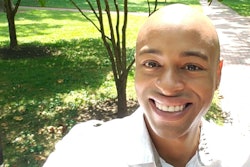The Key to the Closet: Making Race and Sexuality Matter
Black Like Us: A Century of Lesbian, Gay and
Bisexual African American Fiction
Edited by Devon W. Carbado, Dr. Dwight A. McBride, and Donald Weise
Foreword by Evelyn C. White
Cleis Press, 2002, 555 pp., $29.95, Trade paper, ISBN 1-57344-108-2
Fiction by gay, lesbian and bisexual African American authors has long been marginalized in the academy. When it has not been, it frequently has been the victim of a form of academic separatism, often studied within racial contexts excluding sexuality, within sexual contexts excluding race, or within gender constructs excluding both sexuality and race. More damaging than even the academic treatment of these texts, however, has been the stigma often attached to them and their authors amidst African American communities deeply entrenched in the fight against racial prejudice and/or gender bias. For these communities, subjects of untold oppression on so many fronts already, the issue of same-sex love, which brought with it the threat of criminal prosecution for years, was simply taboo.
In Black Like Us, an anthology of 36 works of fiction by African American gay, lesbian and bisexual authors, editors Devon W. Carbado, Dr. Dwight A. McBride and Donald Weise reclaim these authors (and, in turn, their fiction) for scholarship that is inclusive of all facets of their identities and their experiences. Divided into three historical segments preceded by lengthy introductions, this anthology seeks not only to unveil a longstanding “queer” tradition within African American fiction, but also to locate the texts comprising this tradition in the social, historical, political and literary climates of their times.
In part one, “1900-1950: The Harlem Renaissance,” readers will find works by Langston Hughes, Countee Cullen, Alice Dunbar Nelson, Angelina Weld Grimké and Wallace Thurman. In addition, this segment includes what is believed to be the first fiction featuring overt homosexuality published by an African American author, Richard Bruce Nugent’s 1925 “Smoke, Lilies and Jade.” To contextualize these works, the editors provide a sweeping introduction. Using W.E.B. DuBois’ notion of the “Talented Tenth” and its inherent elitism as a starting point, they articulate the ways in which the drive for Black enfranchisement from Reconstruction to 1950 was rooted in the heavily contested idea of “Black respectability.” Relegated to “outlaw status,” very few, if any, African American artisans or scholars openly acknowledged their homosexuality, often opting, as in the case of Cullen, to marry for convenience, or, in the case of Nelson, to limit discussions of sexuality to private (and until recently, unpublished) correspondence. In this section, it becomes clear that underneath the blossoming artistry of African American writers, and beneath the rhetoric of Black uplift, gender equality and Cold War politics that dominated this period, lay a slowly emerging realization that sexuality, too, was a highly charged, political issue.
Part two, “1950-1980: The Protest Era,” is informed by the intense activism characterizing the civil rights era. Including authors such as James Baldwin, Rosa Guy, Audre Lorde, Samuel R. Delaney, Alice Walker and Michelle Cliff, among others, this segment displays African American writers using their fiction to explore their sexual, racial and gender identities. From Brown vs. the Board of Education (1954) and the Montgomery Bus Boycott (1955) to the Stonewall Inn uprising in New York (1969), this was a time marked by intense protest against injustice. What is most striking about the introduction for this segment is the editors’ expression of the outsiderism experienced by Black gays, lesbians and bisexuals despite the numerous organizations founded to fight racial and gender inequality.
Part three, “1980-2000: Coming Out Black, Like Us,” is the largest section of the volume. The editors note within their preface that selecting fiction for it was difficult because works by Black gay, lesbian and bisexual writers during the last two decades of the 20th century alone could have filled a separate volume. The 1980s and 1990s were marked by increased visibility in the American gay population. However, this new visibility and unity brought with it images of interracial gay love in fiction and in the media that seemingly indicated that Black homosexuality and bisexuality only existed within a White model. The works in this section, by authors such as Becky Birtha, Melvin Dixon, April Sinclair, E. Lynn Harris, Shay Youngblood and Randall Kenan, show that authors in this period of African American queer writing desire to be queer within the Black community, with Black-on-Black love.
Carbado, McBride and Weise have compiled an anthology that brings quite a few lesser-known authors to the academy and calls for a re-examination of several more canonical authors. Black Like Us reminds us that we need to re-vision African American authors and scholarship by respecting all aspects of human experience. It insists that we resist the compartmentalization that academia traditionally demands. The editors end by providing an exhaustive bibliography of 20th-century fiction by African American gay, lesbian and bisexual writers, and they hope that this volume is just the beginning of this scholarship.
Carbado is a professor of law and African American studies at the University of California, Los Angeles; McBride is chairman of the African American studies department at Northwestern University; and Weise is the co-editor of The Huey P. Newton Reader.
— Reviewed by Dwan Henderson
Simmons. Simmons is a doctoral candidate at the University of Maryland, College Park.
© Copyright 2005 by DiverseEducation.com















